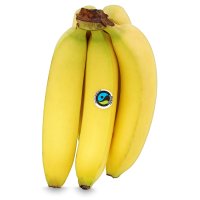Tag: foods
Introducing Your Baby to Dairy
Nutritionally, babies need breastmilk or infant formula until they are one year old. From the age of six months full-fat cow’s milk can be used in cooking and with baby’s breakfast cereals and cow’s milk can be introduced as a main drink from the age of 12 months.

Dairy is an important part of your child’s diet providing essential nutrients such as calcium. When you start weaning your baby at around six months of age you can begin to slowly introduce a variety of foods.
Dairy can be given to baby from the age of six months in the form of cheese but avoid giving blue cheese or soft unpasteurised cheese, such as Camembert and Brie, until your baby is at least one year old. Blue cheese and unpasteurised cheese contain live bacteria which carries the risk of food poisoning.
Yoghurt is a good source of dairy for baby and can be given from the age of six months.
Allergies to Cow’s Milk
Some babies are allergic to cow’s milk so it is important when weaning your baby to introduce foods one at a time over a few days to check for any allergic reactions. You should seek urgent medical help if you think your baby is having an allergic reaction.
A food allergy is when the immune system reacts to a certain food protein resulting in a physical reaction which can occur immediately or within three days.
If your child has cow’s milk allergy the symptoms will start when cow’s milk is introduced into their diet. Symptoms of cow’s milk allergy could result in diarrhoea, vomiting, skin rashes, stomach cramps and difficulty breathing. In rare cases cow’s milk allergy can cause anaphylaxis.
Cow’s milk allergy is a common food allergy in children and most children who have this allergy grow out of it by the age of three, although it is estimated that 20 per cent of adults will continue to have cow’s milk allergy.
Alternatives
Aside from cow’s milk products there are many food sources that contain high levels of calcium. So if your child does have an allergy to dairy products you can still make sure your child’s diet is rich in calcium. Some good sources of calcium rich foods include sesame seeds, sardines canned in oil, spring greens, tofu, watercress and kale.
 Lydia Oliver – Nutritional Advisor Only Best For Baby
Lydia Oliver – Nutritional Advisor Only Best For Baby
This article was published in the September 2013 edition of Mummy and Me Magazine.
I offer one to one nutrition programmes for breastfeeding, post pregnancy weight loss, weaning, weight management and health. Contact me.
Top 5 Foods for a Good Night’s Sleep
As a parent I count my blessings each time I get a full night’s sleep, it’s enough to make me want to jump out of bed with joy in the morning. If my toddler doesn’t wake me then I’m usually lucky enough to sleep through the night. But on occasion when I just can’t drift into a slumber, whether for reasons of stress or just a plain old inability to sleep, I turn to natural foods to assist.There are some simply brilliant foods to help induce Zzz’s. These foods contain tryptophan which converts to serotonin and melatonin, the brain’s key calming chemicals. Serotonin promotes calm and melatonin helps to cause drowsiness and lower body temperature for a restful sleep. The perfect package for shut-eye.
I recommend trying one or two of these foods 90 minutes before you plan to close your eyes so your digestive system has time to process what you eat before slumber. It’s always a good idea to avoid caffeine and alcohol at least four hours before sleep and don’t go to bed when you’re either hungry or full as this will contribute to a disrupted night’s sleep.
Top 5 Foods for a Good Night’s Sleep
1. Bananas
High in serotonin and melatonin, bananas also contain potassium and magnesium which is a muscle relaxant.
2. Oatmeal
A small bowl of oatmeal contains melatonin and complex carbohydrates which can help more tryptophan get into the brain. Topped with some warm milk this is a healthy source of comfort food and if you’re slightly peckish it will keep those hunger pangs at bay.
3. Almonds
A handful of almonds contains tryptophan and magnesium to relax muscles.
4. Low-fat Cottage Cheese
Low-fat cottage cheese contains tryptophan and is a lean source of protein that will help keep your blood sugar regulated throughout the night.
5. Flaxseed
Known for their mood lifting properties. Sprinkle a couple of teaspoons of flaxseed on a small bowl of oatmeal or on a portion of low-fat cottage cheese.
If you feel like a warm drink before bed a cup of chamomile tea can help to promote calm thanks to chamomile’s natural soothing properties. If you want something a little richer a glass of warm milk contains tryptophan and calcium, known to reduce stress and stabilise nerve fibres.
Take your pick from these Top 5 Foods and see what works best for you.
Most importantly, don’t stress about not sleeping. Having a regular routine before bed will help to get your mind and body in the mood for sleep. A warm bath with some relaxing aromatherapy oils and reading a good book before bed contribute to winding down and preparing for rest.





